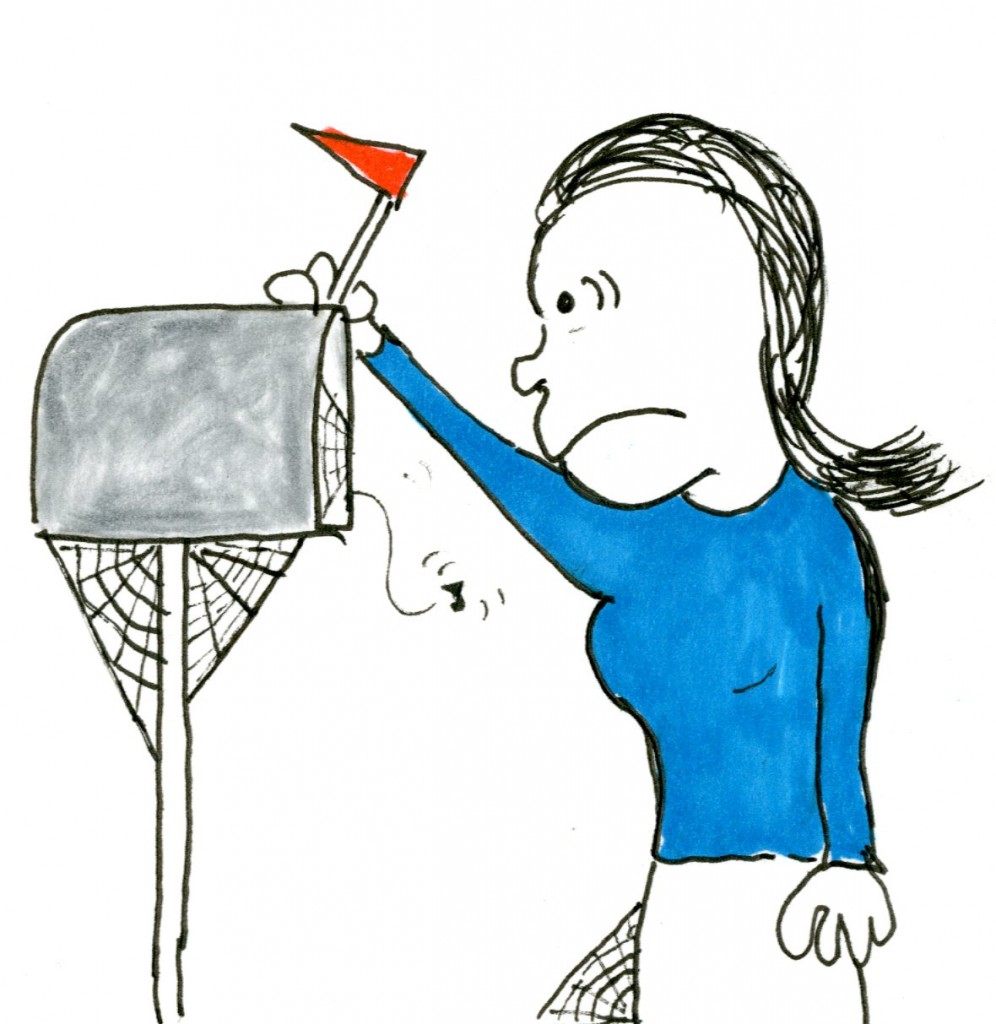
Guest contributor: Nina de Gramont
Bad Advice Wednesday All-Star Guest Post: Whistle While You Wait
categories: Bad Advice / Cocktail Hour
3 comments
.
To be a writer is to be a waiter, and I’m not talking about tables. Waiting. It can be the most excruciating part of the whole process. You spend years working on a book, pounding out a first draft, sweating over the revisions, doing everything you can to bleed your heart out onto the page. When you finally declare yourself done – or at least done enough to hand the manuscript over for a verdict — that’s when it begins. Even if your first reader is just a friend whose opinion you value, it can be brutal. One day ticks by, then two, then a week. Has she started reading yet? Was it so boring that she couldn’t get past the first page? Does she hate it so much that she needs time to finesse a diplomatic response?
Don’t worry. Eventually your friend will respond. She may have helpful suggestions for revision, or she may absolutely love it the way it is (the latter is more likely if the friend is not a writer herself). Either way, the TRULY brutal waiting is now getting closer, because the time to submit to professionals is nigh, and if you think your friend took a long time to read…
I’m sorry to be the one to tell you this. But if you haven’t yet published a book, there’s no predicting how long you’ll wait before hearing back from prospective agents. At Absolute Write Water Cooler, a site for writers, most threads regarding agents involve complaints about response time, in some cases more than a year, and in one case FIVE YEARS – by the time the agent replied positively to the query, the book had already been published. “Grow a thicker skin and move on,” advises this patient fellow. “Rejection (and being ignored) is part and parcel of the writer’s life.”
Of course these are extreme examples, and once you’re an author who already has an agent, your wait won’t be nearly as long. But you still can’t presume a speedy reply. Not only do agents have stacks of manuscripts on deck from aspiring and established clients, the nature of the business precludes scheduled reading time. Your agent may have every intention of reading your novel this week, when suddenly he finds out that a prospective client who submitted a five hundred page memoir is getting offers from three other agents. So your manuscript gets bumped off the top of the stack yet again (Of course it’s a metaphorical stack because your agent reads on a Kindle or Ipad). Meanwhile the hours and days and weeks are again ticking by, and the sense of confidence and love you had for your book is not only waning, but morphing into the sort of anxiety that begs for medication. Think this ends once an agent has read and loved the book? Prepare to refill your prescription, because now the submission process begins. I have a friend whose brilliant, gorgeous, and highly readable second novel (the first sold well and got great reviews) took two years to find a publisher.
So where does the bad advice come in? For one thing, you need a special ringtone for your agent to prevent your heart fluttering with wild hope every time the phone rings. Beyond that, you kind of have to accept the fact that once you’ve written the best book you possibly can, it’s out of your hands. You’re going to have to wait, possibly for a very long time. And so the only choice you really have is to start a new project.
I have heard writers say that their books are like their children. Perhaps I’m lucky not to feel this way. Whenever anyone asks me which of my books is my favorite, the answer is invariably the one I just finished, or the one I’m working on now. To me books are like romances, and you know the best way to get over one of those. The only way to stop pinning all your hopes and dreams on the book you just finished is to write another one. The incomparable Brad Watson once told me that when he’s working on a novel, ideas for other books are like sirens, calling to him from the rocks. But once that book is finished, you’re free to give your mind over to those siren songs. Everyone knows that a watched pot boils at precisely the same speed as an un-watched pot. The trick is in not exclusively waiting. The trick is in rejecting the timetable of the business, and creating your own timetable for doing the work you love, which is writing books.
Will that make the waiting easy? Will it stop you from diving for the phone, heart aflutter, when you finally do hear your agent’s ringtone? Probably not. But at an absolute minimum, whatever the fate of the book you just wrote: you’ll still have the book you’re writing


Very Wise! But I especially feel for the creative people who do not become validated until after they die. Georges Bizet (wrote Carmen) died at 35 because he thought Carmen was a failure! And now its the most popular Opera in the world. The creative process is not an easy one!
Thanks for this timely advice! I thought you’d be interested in this column by Libba Bray, “Writing, A Romance.” http://msp.imirus.com/Mpowered/book/vds10/i8/p146
Hilarious, Rebecca, thank you!